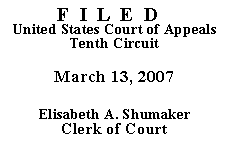

| UNITED STATES OF AMERICA,
Plaintiff-Appellee, v. ALEX OROZCO, Defendant-Appellant. |
|
Defendant's plea agreement states that he "knowingly and voluntarily waives any right to appeal or collaterally attack any matter in connection with this prosecution, conviction and sentence." Plea Agreement at 6 (filed May 18, 2005). More specifically, it recites that defendant "knowingly waives any right to appeal a sentence imposed which is within the guideline range determined appropriate by the court," reserving the right to appeal only "to the extent, if any, the court departs upwards from the applicable sentencing guideline range determined by the court." Id.
Under Hahn, we consider "(1) whether the disputed appeal falls within the scope of the waiver of appellate rights; (2) whether the defendant knowingly and voluntarily waived his appellate rights; and (3) whether enforcing the waiver would result in a miscarriage of justice." Id. at 1325. The government's motion addresses these considerations, explaining why none undermines defendant's appeal waiver here. We agree.
The defendant has not filed a response to the government's motion, thus, the motion to enforce is unopposed. Having reviewed the pertinent materials, we find nothing to except this case from the consequences of the broad appeal waiver included in defendant's plea agreement. The district court imposed a sentence of 121 months' imprisonment, which was well below the maximum statutory penalty of forty years and below the 135-to-168 month advisory guideline range. Thus, the sentencing issues asserted on appeal fall within the scope of the appeal waiver. The plea agreement and the plea colloquy demonstrate that defendant knowingly and voluntarily entered into the plea agreement, including the waiver of appellate rights. Further, we find nothing to suggest that enforcement of the waiver would result in a miscarriage of justice.
The government's motion to enforce the waiver is GRANTED and the appeal is DISMISSED. The mandate shall issue forthwith.
ENTERED FOR THE COURT
PER CURIAM
*. This panel has determined unanimously that oral argument would not materially assist the determination of this appeal. See Fed. R. App. P. 34(a)(2); 10th Cir. R. 34.1(G). The case is therefore ordered submitted without oral argument. This order and judgment is not binding precedent, except under the doctrines of law of the case, res judicata, and collateral estoppel. It may be cited, however, for its persuasive value consistent with Fed. R. App. P. 32.1 and 10th Cir. R. 32.1.